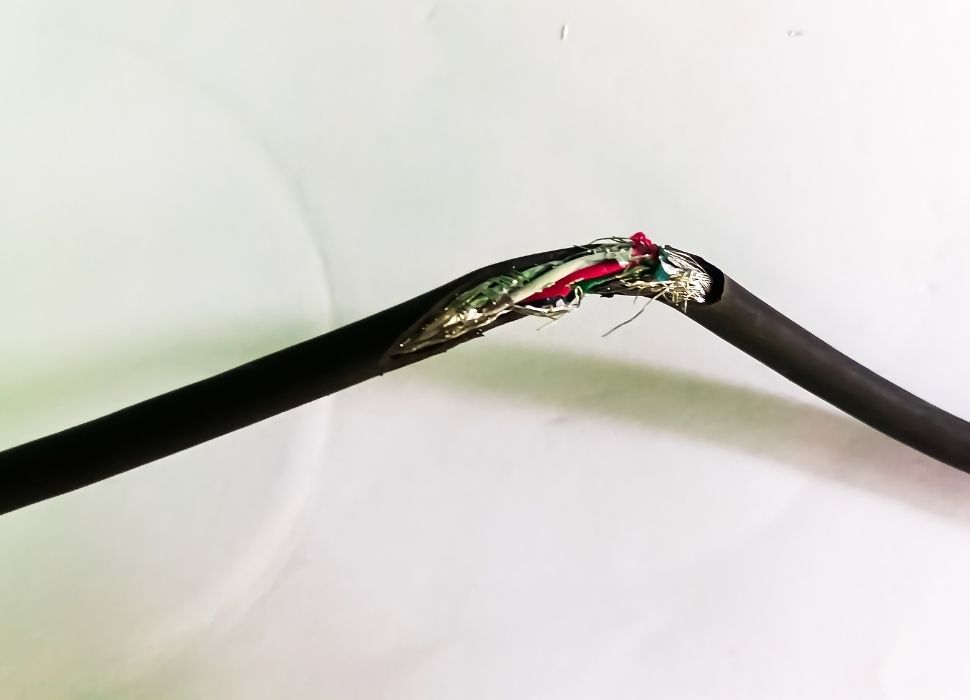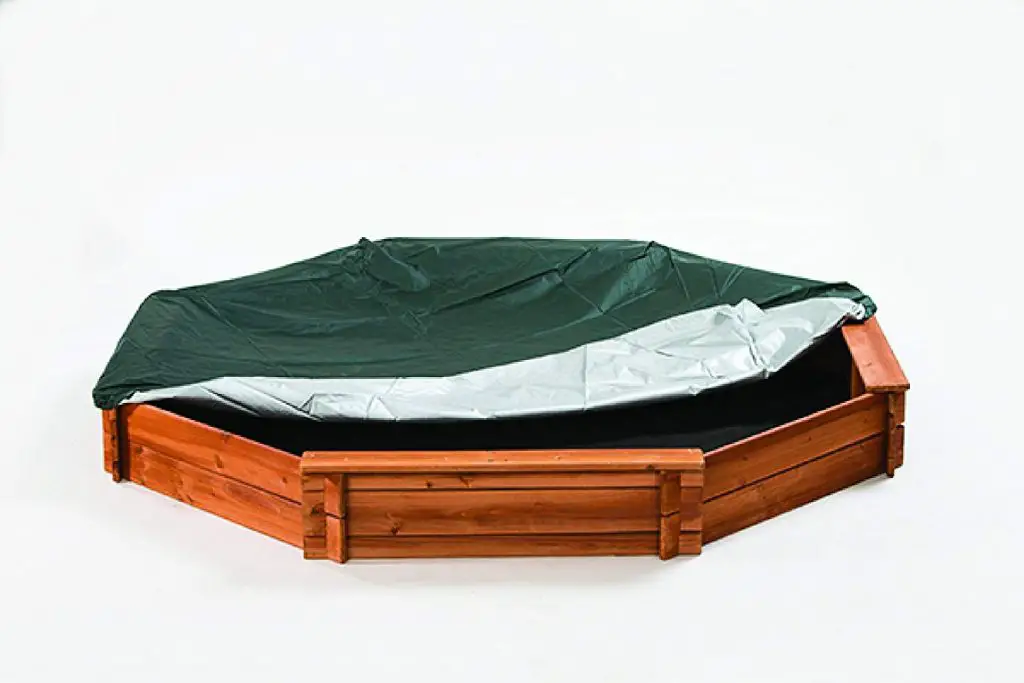Rabbits aren’t always cute cuddly bundles of fun and if you are a rabbit owner yourself you probably understand that rabbits can be quite a handful especially those that are aggressive. If you’re a new owner just experiencing this side to your sweet new companion you’ll want to know what’s going on and more importantly, what you can do about it.
Rabbits often show aggression when they are in pain or bored. Providing enriching activities and treating them with kindness will curb most aggression and destructive behavior. A check-up with a vet should be sought to rule out any possible pain points or underlying health issues.
Is Something Wrong With My Rabbit?
There are several reasons why a rabbit might start acting in a seemingly destructive manner. Most types of destructive behavior are not the result of serious health issues and can be easily fixed.

Destructive behavior in rabbits usually means a degree of damage has been done within the environment the rabbit lives, this is likely to be within a hutch or (other outdoor enclosure) or, if you share it with a free roam bunny, your home.
While for the most part chewing will be the most frequent problem there are a few ways that a rabbit may do damage, namely chewing, digging, and spraying/peeing, a rabbit may exhibit one or all of these behaviors at the same time.
Before we go over each of these behaviors let’s quickly look at the most important first step you can take to stop destructive behavior in rabbits – spaying and neutering.
Spaying and Neutering
If your new pet has started behaving badly all of a sudden and you have had the rabbit from a baby a common explanation for the change in behavior is that the rabbit is reaching sexual maturity.
Similar to the way a child might misbehave when he becomes a teenager rabbits reaching sexual maturity can display territorial behaviors including spraying, chewing, and digging which can be perceived as destructive especially when carried out by a house rabbit. Rabbits should be spayed or neutered at the earliest opportunity.
Not only is this good for their health (reducing the chance of certain medical conditions such as uterine cancer in females) and mental wellbeing, it can stop aggressive and destructive behavior towards each other or your personal property or furniture.
Common Destructive Behavior
Chewing
A rabbits teeth are continually growing and they rely on chewing as a means to keep their teeth at a healthy length.
In the case of house bunnies, it can be quite distressing if a much-loved piece of property or clothing gets damaged by the inquisitive mouth of a bunny.
For me personally, destructive chewing has included assaults on, table legs, clothing, shoes, internet cabling, and stairs.
Rabbits are keen explorers and house rabbits will spend a lot of time getting to know a new environment or home. This means finding the best places to hide when they need privacy or to sleep.
To a rabbit no hiding place is off-limits. Dark hiding spots instinctively remind a rabbit of the warren with spaces behind the furniture or sofa providing similar security they would get from a burrow.
If you have a house rabbit, rather than stopping them from accessing these areas, allow them a sufficient-sized entrance and a clear route out.
This will ensure that they have no need to create alternative routes. Providing them with comfortable fleece blankets to dig and nibble at may also deter them from damaging the furniture.
In terms of your personal property, rabbits are inquisitive and use their mouths as a way to investigate new and interesting items.
This may be, your new boots, bag, or anything else you might leave lying around, rabbits don’t discriminate or understand ‘sentimental value’ so if you’re a rabbit owner, keep your belongings somewhere out of your pet’s reach.
How Do I Stop a Rabbit Chewing In My Home?
If you keep a rabbit indoors, it’s unlikely that you will be able to stop all chewing behavior completely however there are some very easy fixes that can help deter them from destroying furniture or property.
The main cause of excessive chewing in a rabbit is simply not having access to hay. Hay is the staple of a rabbit diet and they need an unlimited supply.
Not only does hay keep the rabbit’s digestive tract moving as it should, but hay also keeps the rabbit’s continually growing teeth ground down.
The solution is simple – always provide an unlimited supply of good quality hay, fail to provide this vital requirement and a rabbit will naturally look for other things to chew.
If you’re already providing a good supply of hay and your rabbit does not seem to like it, try another brand, although rabbits can be picky it’s very important to persist with hay until you find a brand that the rabbit likes.
Another cause of excessive chewing is lack of enrichment and boredom. Providing your rabbit with interesting toys to chew on will also help prevent them from chewing things they shouldn’t.
Wooden toys and challenges like ‘find the treat’ games will keep them occupied however even simple cardboard boxes can provide hours of chewing fun for a rabbit.
Note: Hutch rabbits may still gnaw at the inside of a wooden hutch even if provided with ample straw and toys however this is likely due to boredom and a lack of freedom to explore.
If you have the space available, always provide your rabbit plenty of time outside to explore away from its hutch or the familiar home. This will allow the rabbit to exercise and nibble on things.
If your house bunny is still a menace despite enriching toys and ample hay a large puppy pen might be a good compromise.
Things you can do if you have a problem with chewing
- Ensure the rabbit is spayed or neutered
- Ensure rabbit has clear routes in and out of hiding spots
- Provide unlimited good quality hay of your rabbits preferred brand
- Provide enriching and chewable toys and cardboard boxes
- Ensure all electrical wires are out of reach or protected
Digging
So why is my rabbit digging at the carpet?
Rabbits enjoy digging and if they are not given an opportunity to indulge this behavior in a natural environment outside, they will do it on the rug/carpet or even your clothing (regardless of whether you are wearing it or not!).
Often accompanied by pulling and nipping this behavior can quickly become damaging.
Digging is an instinctive behavior and cannot be quite as easily deterred as chewing, however, there are a couple of things we’ve found that help to prevent this behavior in the home.
Firstly, ensure the rabbits nails are adequately clipped, In the wild rabbits naturally keep their nails short through digging and it’s likely this instinctive behavior will be demonstrated on your carpet the animal has no other place to dig.
If you’re unsure how to clip a rabbits nails yourself, you can read our complete guide here.
Secondly, allowing the rabbit access to a secure garden or a sandpit (like the one below) filled with earth or sand. This may scratch the digging itch enough that when the bunny gets back in the house, it’s too tired or disinterested in digging to bother with your furnishings.

Spraying and Peeing
Spraying and peeing can be quite antisocial, particularly If your bunny is doing it inside the home. Territorial spraying is carried out by both bucks and does but the behavior can be reduced greatly by spaying and neutering at the earliest opportunity.
General use of a particular spot in your home as a toilet can be more difficult to rectify and requires a period of litter training. You can read our complete guide on how you can litter train your own rabbit here.
Should I Punish a Destructive Rabbit?
No, rabbits should never be punished for doing what comes naturally, gentle discipline and training is the best way to encourage good behavior. You can read our post all about rabbit discipline techniques here.
Can the Age or Sex of My Rabbit Make it More Destructive?
Younger rabbits naturally have a lot more energy than older ones so destructive behavior is less likely in older more settled rabbits. Spayed or neutered mature rabbits that exhibit destructive behavior could have an underlying medical issue and may need a checkup with a vet.
Wrap Up
Destructive behavior in rabbits is very common but It’s important to remember that often what we perceive as destructive behavior is perfectly natural to a rabbit.
While we have focused mainly on house rabbits in this post we also need to remember that hutch rabbits are much more likely to become bored and depressed than those that get to enjoy the run of an entire house.
Regardless of whether your own pet is a house rabbit or an outdoor pet If you can’t provide a companion to keep them company, ensure that they are provided plenty of interesting activities to do.
In most cases providing a rabbit enough enrichment is the key to ensuring destructive behavior is kept to a minimum.
Further Reading
Destructive Behavior in Rabbits bunnyhugga.com
Reasons Why Rabbits Chew and How to Stop It thesprucepets.com
Bunny getting more and more destructive binkybunny.com
